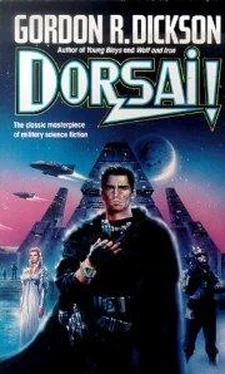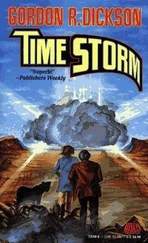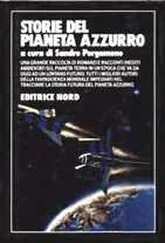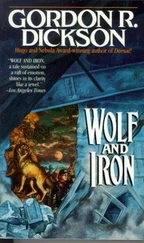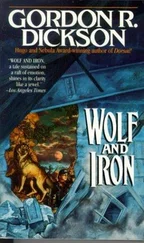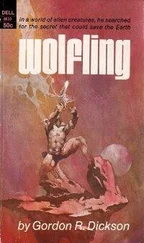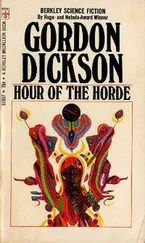Dorsai!
by Gordon R. Dickson
Introduction by David Drake
I don’t insist that you believe Dorsai! is the best novel of military SF ever written: one could make a pretty good case for Heinlein’s Starship Troopers . I will, however, insist that those two novels (first published within weeks of one another in 1959) are in combination the standard against which the subgenre of military SF must be judged.
Everybody who’s attempted a complex task knows that there are more ways to go wrong than there are to do the job right. Dorsai! and Starship Troopers are a useful illustration of the diversity nonetheless possible between first-class works, even within a category as narrow as military SF. Heinlein’s novel focused on the individual soldier and the social forces that molded him. Dorsai! is an investigation of the problems of high command and the qualities that produce the ideal commander.
The differences in approach aren’t so much apples and oranges but rather the drive and driven plates of a clutch: both command and execution are necessary for a military system to work. In my opinion, Dickson and Heinlein have explored these segments of the system not only as well as anybody in the field has done, but as well as anybody is likely ever to do.
Dorsai! is an exposition of what Basil Liddell-Hart termed the Strategy of Indirection. (I do not imply a necessarily direct connection.) Instead of overwhelming one’s opponent by brute force, the exponent of indirection maneuvers so that his opponent has to attack or (better yet) is checkmated without a battle.
Liddell-Hart developed his theories as a reaction to the blood-drenched kilting grounds of World War (tee, a conflict that was as perfect an example of the brute force approach and its limitations as one could find. The brute force technique as refined to its quintessential form by Field Marshal Haig involved silencing hostile machine guns by attacking with more infantry than the machine gunners had bullets. (I wish I were exaggerating, but read the accounts.)
Liddell-Hart went further back in history and examined the campaigns of Hannibal, Sherman, and particularly the Byzantine general Belisarius to find an alternative strategy. To defeat an entrenched enemy, maneuver around him and force him to leave his fortifications in order to protect his rear areas. Instead of attacking an enemy, destroy his supplies so that he has to retreat. Move into a position that the enemy must take (ideally for reasons of perceived honor rather than pragmatic need) and let him waste his strength against your fortifications — until you move out and leave him with a useless shell.
These are the sorts of campaigns that Donal Graeme, the hero of Dorsai! , fights. Anyone who has had the fortune to be involved in the other sort of war will wish that more real-life officers had considered the responsibilities of command as clearly as Dickson did.
Dorsai! is and was conceived as a self-standing novel. Because of the strength of its conception, however, it has become the foundation of one of science fiction’s most ambitious and far-ranging constructs, the Childe Cycle. The Cycle is a vast structure, spanning a millennium from the historical 14th century to a fictional future in which the triune aspects of humanity will be united again in a form both superhuman and super-humane.
Much of the Cycle remains to be written still today, more than thirty years after the original publication of Dorsai! , but the pieces of the interlocking whole continue to appear — each excellent in its own right It is a tribute to the structure of the original novel that the conception shown here in microcosm remains valid despite the weight of detail accreting in the later novels.
I’ve discussed Dorsai! as paradigm: for fiction writers in general, for military professionals, and for Dickson himself in his later work. None of the above could have touched me when I first read the novel at age 15. (Well, I read The Genetic General ; which is not quite the same thing, but almost.)
What struck me and caused me to reread the novel a number of times was that this is one heck of a good story. It’s a model of clean prose, seamless structure, and fast action, hi this too, Dorsai! is a paradigm — for other writers. But that doesn’t have to matter to readers, whether first-timers or (like me the other day) for the umpteenth time.
Dive in and have fun!
—David Drake, Chatham Country, NC
The boy was odd.
This much he knew for himself. This much he had heard his seniors — his mother, his father, his uncles, the officers at the Academy — mention to each other, nodding their heads confidentially, not once but many times during his short eighteen years of life, leading up to this day. Now, apart, wandering the empty rec fields in this long, amber twilight before returning to his home and the graduation supper awaiting him there, he admitted to the oddness — whether truly in himself, or only in what others thought of him.
“An odd boy,” he had overheard the Commandant at the Academy saying once to the Mathematics Officer, “you never know which way he’ll jump.”
Back at home right now, the family would be waiting his return — unsure of which way he would jump. They would be half expecting him to refuse his Outgoing. Why? He had never given them any cause to doubt. He was Dorsai of the Dorsai, his mother a Kenwick, his father a Graeme, names so very old their origin was buried in the prehistory of the Mother Planet. His courage was unquestioned, his word unblemished. He had headed his class. His very blood and bones were the heritage of a long line of great professional soldiers. No blot of dishonor had ever marred that roll of warriors, no home had ever been burnt, its inhabitants scattered and hiding their family shame under new names, because of some failure on the part of one of the family’s sons. And yet, they doubted.
He came to the fence that marked off the high hurdles from the jump pits, and leaned on it with both elbows, the tunic of a Senior Cadet pulled tight across his shoulders. In what way was he odd? he wondered into the wide glow of the sunset. How was he different?
He put himself apart from him in his mind’s eye, and considered himself. A slim young man of eighteen years — tall, but not tall by Dorsai standards, strong, but not strong by Dorsai standards. His face was the face of his father, sharp and angular, straight-nosed; but without his father’s massiveness of bones. His coloring was the dark coloring of the Dorsai, hair straight and black and a little coarse. Only his eyes — those indeterminate eyes that were no definite color but went from gray to green to blue with his shifting moods — were not to be found elsewhere on his family trees. But surely eyes alone could not account for a reputation of oddness?
There was, of course, his temper. He had inherited, in full measure, those cold, sudden, utterly murderous Dorsai rages which had made his people such that no sane man cared to cross one of them without good reason. But that was a common trait; and if the Dorsai thought of Donal Graeme as odd, it could not be for that alone.
Was it, he wondered now, gazing into the sunset, that even in his rages he was a little too calculating — a little too controlled and remote? And as he thought that thought, all his strangeness, all his oddness came on him with a rush, together with that weird sense of disembodiment that had afflicted him, now and again, ever since his birth.
It came always at moments like this, riding the shoulders of fatigue and some great emotion. He remembered it as a very young boy in the Academy chapel at evening service, half-faint with hunger after the long day of hard military exercises and harder lesson. The sunset, as now, came slanting in through the high windows on the bare, highly polished walls and the solidographs of famous battles inset in them. He stood among the rows of his classmates between the hard, low benches, the ranked male voices, from the youngest cadet to the deep man-voices of the officers in the rear, riding the deep, solemn notes of the Recessional — that which was known as the Dorsai Hymn now, wherever man had gone, and which a man named Kipling had written the words of, over four centuries before.
Читать дальше
